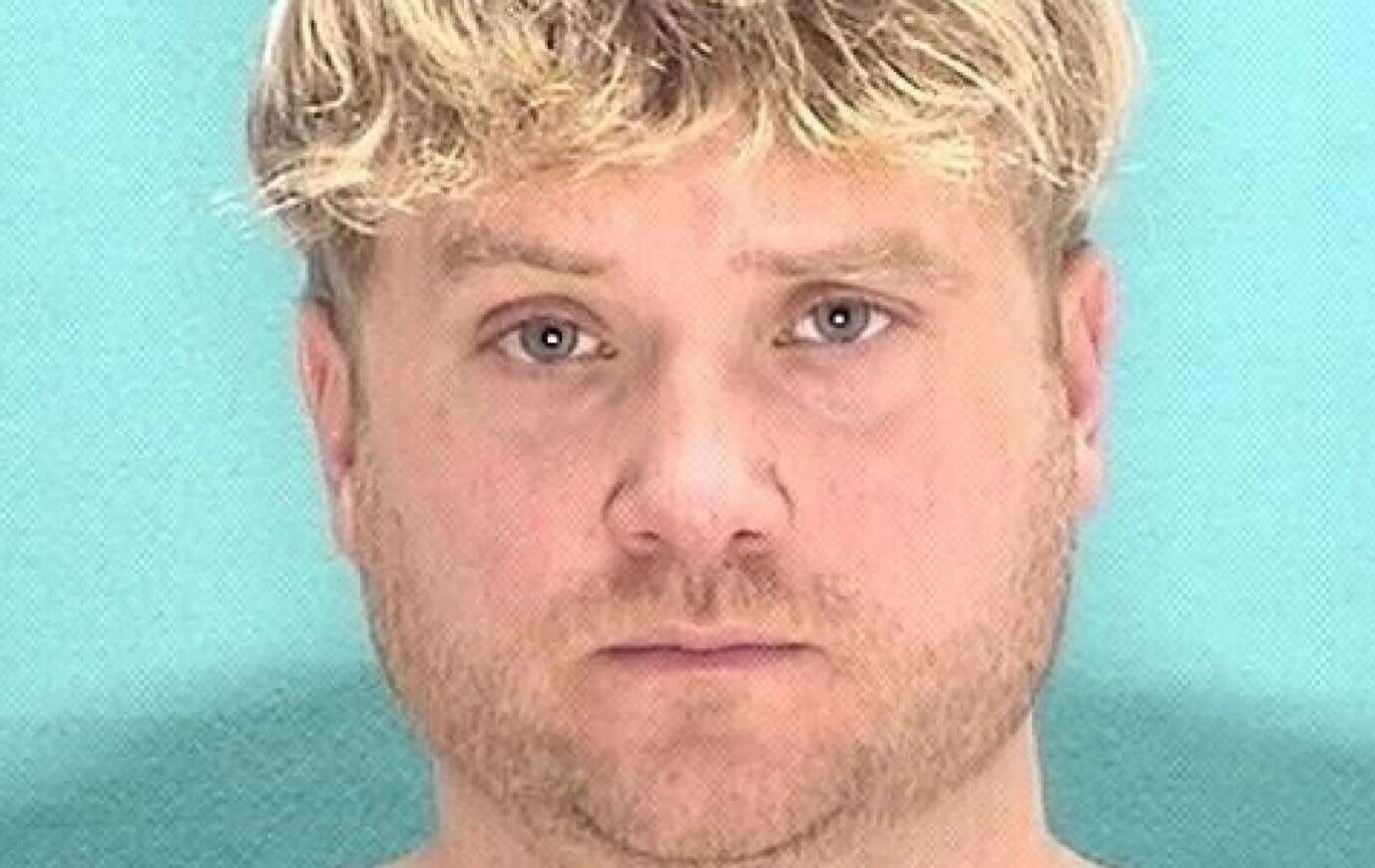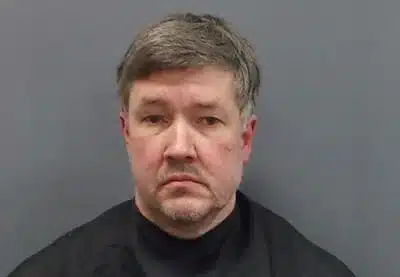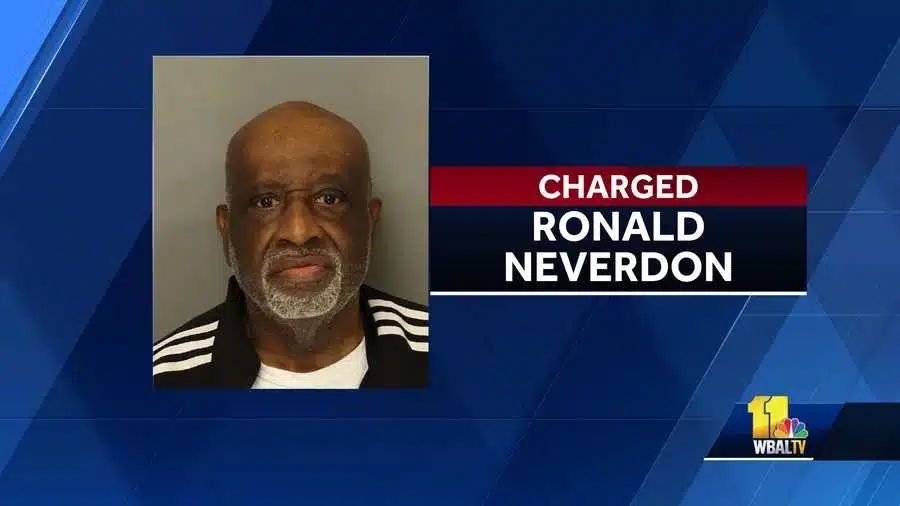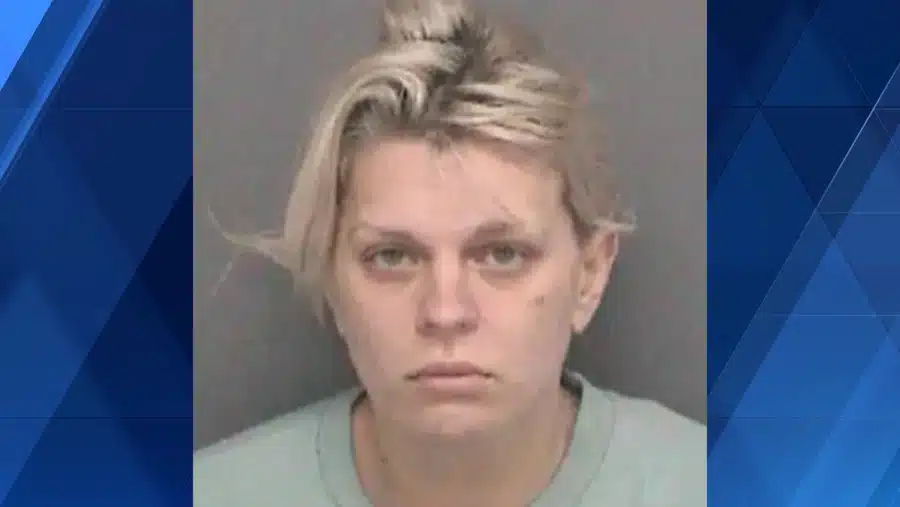ANDREOZZI + FOOTE
SCHOOL SEXUAL ABUSE
Home » Practice Areas » School Sexual Abuse
Reviewed by:
Benjamin D. Andreozzi, Esq.
- Last Updated: April 7, 2025
What Is Sexual Abuse In A School Setting?
While sexual abuse happens at all ages, some groups are at higher risk, for school-age children RAINN reports that victims under 18
- One in 9 girls and 1 in 53 boys under 18 experience sexual abuse or assault at the hands of an adult.
- 2 out of 3 sexual abuse victims are between the ages of 12-17.
- 82% of all victims under 18 are female.
- Females ages 16-19 are 4 times more likely than the general population to be victims of rape, attempted rape, or sexual assault.
Sexual abuse in a school setting can take many different forms, but it generally involves any type of unwanted sexual behavior that occurs between a student and an adult in a school or educational setting.
Sexual abuse can include physical contact, such as touching or fondling of sexual body parts, rubbing up against someone, kissing, penetration of any kind however slight, and any other sexual contact, it can also include non-physical behaviors, such as sexual comments, harassment, jokes, stalking, or gestures either verbally or orally.
Sexual abuse can also include producing, owning, or sharing pornographic images or movies of children.
Sexual abuse can also include coercion or manipulation by an adult to engage in sexual behavior, such as threats or promises in exchange for sexual favors. It is important to note that sexual abuse is never the fault of the victim, and it is always the responsibility of adults in a school setting to ensure that students are safe and protected from any type of abuse or harm.
There are often misperceptions and stereotypes when sexual abuse is reported among teenagers and teachers, often the sexual abuse is referred to in consensual ways such as headlines that read, “Teacher dating student or Teacher and student having an affair or having sex” It is vital to remember that children are children until the age of 18 and they cannot legally consent to sex with an adult.
When you factor in the power dynamics between teachers, coaches, and school administrators, it is deeply problematic to misrepresent these cases of sexual abuse as anything but that.
We also often see these misperceptions when the adult is a female and the victim is a male, those cases are often referred to as love affairs or inappropriate relationship when they are illegal and sexual abuse under the law.
Who Are The Most Common Perpetrators?
The U.S. Department of Education’s National Center for Education Statistics reported that approximately 7 percent of male students and 2 percent of female students reported experiencing sexual misconduct by a teacher or other school employee during their lifetime.
The most common perpetrators of sexual abuse in schools are adults in positions of authority or trust over the students, such as teachers, coaches, counselors, and other staff members.
These individuals may use their power and influence to manipulate or coerce students into engaging in sexual activities, or they may take advantage of their access to students to engage in inappropriate behavior.
There is no clear evidence to suggest that one group of school staff members, such as teachers or coaches, are more likely to sexually abuse students than another category. However, some studies found that male coaches were significantly more likely to report engaging in boundary-violating behaviors, such as touching or hugging their athletes, than female coaches.
Research shows coaches may be more likely to engage in boundary-violating behaviors than other school staff members due to the close physical contact and emotional relationships that can develop between coaches and athletes.
Additionally, coaches may be more likely to have access to students outside of the school setting, such as during travel or training events, which can create opportunities for abuse.
It is important to note that sexual abuse is always wrong, regardless of who the perpetrator is, and that schools should have policies and procedures to prevent and address any allegations of sexual abuse or misconduct by staff members.
Another category of perpetrators of sexual abuse in school settings comes in the form of peer-on-peer sexual abuse. The prevalence of peer sexual abuse in schools can be difficult to measure, as many incidents may go unreported or unrecognized. However, research suggests that peer sexual abuse is a relatively common problem in schools.
According to a 2009 article in the Journal of Youth and Adolescence, rates of peer sexual assault were high, ranging from 26% of high school boys to 51% of high school girls. The school was the most common location of peer sexual victimization.
It is important to note that these figures are likely underestimates, as many students may not report incidents of sexual abuse or may not consider certain behaviors to be abusive. Additionally, peer sexual abuse can occur at any age and in any type of school setting, from elementary schools to colleges and universities.
Schools need to have policies and procedures in place for addressing peer sexual abuse, and for providing support and resources to child sex abuse victims of abuse.
Where Does School Sexual Abuse Happen?
Sexual abuse can occur on school grounds such as classrooms, hallways, and bathrooms, during school-sponsored activities, during transportation to and from school, field trips, athletic practices, away games, weight rooms, showers, off-campus in private homes, vehicles, summer camps, before and after school programs, at all levels of school from K-12, in daycare settings and college campuses.
Sexual abuse can happen anywhere opportunity and access present themselves. With the increase in online learning and virtual classrooms, sexual abuse may occur through online communication, such as chat rooms, social media, or video conferencing.
Often, sexual abuse is done in private with no witnesses or if it’s done in public it’s hidden, i.e., a hand on a thigh under a table or in the back of the bus when no one is looking, etc. but those are rare cases, most perpetrators wait for moments when their child sex abuse victims are alone.
This makes it harder for students to come forward as they feel no one will believe them, especially when the perpetrator is well known and well-liked as many perpetrators are, this is a part of the grooming that perpetrators engage in with the victim and the community.
What Are The Legal Responsibilities Of School Staff?
School staff has always had legal responsibilities regarding preventing and reporting sexual abuse and misconduct involving students. Since the revelations of many major cover-ups in educational settings such as the Jerry Sandusky and Larry Nassar cases, requirements for school officials have increased. The specific legal responsibilities can vary by jurisdiction, but here are some general guidelines:
Mandatory Reporting
All school staff is considered mandated reporters, which means that they are legally required to report any suspected child abuse or known incidents of child abuse or neglect, including sexual abuse, to the appropriate authorities.
In the past, it use to be that school staff could just report to a supervisor or another staff member and this is one of the reasons so many school cases were never properly reported or covered up. Proper authorities are considered state childline reporting entities and law enforcement.
Failure to report can result in legal consequences such as criminal fines and civil liabilities.
Check your state’s laws to learn more. According to the Department of Child Welfare, approximately 49 States, the District of Columbia, American Samoa, Guam, the Northern Mariana Islands, Puerto Rico, and the Virgin Islands impose penalties on mandatory reporters who knowingly or willfully fail to make a report when they suspect that a child is being sexually abused or neglected.
Depending upon the state you can be charged with a misdemeanor or a felony and face fines from $300 – $10,000 and serve anywhere from 30 days to 10 years in prison.
In Arkansas, Colorado, Iowa, Michigan, Montana, New York, and Rhode Island not only can mandated reporters be charged criminally but they may be civilly liable for any damages caused by the failure to report, meaning an impacted person can file a civil claims lawsuit against not just the school but the individual employee.
School Abuse Prevention
Schools must take steps to prevent sexual abuse and misconduct from occurring. This may include providing education and training to staff and students on how to recognize and prevent sexual abuse, establishing clear policies and procedures for reporting and investigating allegations of abuse, and conducting background checks on all school employees.
Schools should provide education and training to staff, students, and parents on the warning signs of sexual abuse, the importance of reporting incidents, and appropriate boundaries between adults and students.
Schools should also have clear policies and procedures for reporting and investigating allegations of sexual abuse and misconduct, as well as for preventing and addressing inappropriate behavior. These policies and procedures should be posted in multiple places on their webpage, in the school, sent home to the parents, and well communicated often to all.
Conducting thorough background checks on all school employees, volunteers, and contractors, including criminal history checks and reference checks is required in most states and should be done for any person in the school that may remotely engage children at all.
When trying to prevent sexual abuse the more eyes on any situation, the better, supervision and monitoring are essential. Schools must ensure that all adults who interact with students are supervised and monitored, especially in situations where one-on-one interactions are possible.
When students are impacted by sexual abuse there must be support and resources for students, including counseling services and referrals to outside resources. To determine when the unwanted sexual contact abuse have occurred, schools must have proper reporting and investigation protocols in place that are transparent and done with clear guidelines for reporting to law enforcement and child protection agencies.
So many of the acts of covering up child sexual abuse in schools have come from a lack of clear reporting channels and ensuring that no one person has sole authority to handle sexual abuse investigations. There should be multiple staff who are aware of and involved in accusations of sexual abuse and the proper authorities must be notified. Period.
Policies and procedures are only as good as they are known and used. Schools must engage in continuous confidential review and update policies and procedures related to sexual abuse prevention and response to ensure they are effective and up-to-date with current best practices and legal requirements.
This should be done annually and with all staff and students engaged. Students should be engaged because they are the ones impacted the most, they should have a degree of input into the services given to them and fully understand the policies and procedures.
School Abuse Response
If an incident of sexual abuse or misconduct is reported or suspected, the school must take immediate action to investigate and respond appropriately. This may include involving law enforcement, conducting an internal investigation, and providing support to the victim and their family. The process should be trauma-informed and truly center on the needs of the survivor or impacted person(s).
This can be done by ensuring someone is there to navigate the survivor through the entire process, explaining the next steps, preparing them for any interviews or hearings, and providing general supportive measures and services.
Survivors and impacted persons should be given as many legal options as possible during the entire response and as best as possible, the burden should not sit with them to feel safe at school which is more often the case.
Typically if the accused person is an adult they are removed from the school environment, and usually placed on either leave (paid or unpaid) pending the investigation. When the accused person is a peer in school, this is where things can get a bit more challenging, and special thought should be given to the impacted students’ emotional and physical safety. Typically students who are accused of sexual abuse at school are not removed from the school unless there are extreme circumstances.
In these instances, there should be things like mutual no-contact orders put in place, the ability for schedule changes to avoid contact in the school settings, etc. There should be strict anti-retaliation policies in place to avoid bullying from others and further harassment or threat from the accused.
If the accused is found to be responsible for the acts either through the Title IX process or the juvenile justice process, the survivor’s needs should be centered. This could include suspending the student and or requiring a transfer to another school rather than having the survivor have to find another school. This has been codified into law in some states.
Confidentiality
While maintaining confidentiality is important, schools must balance the need for confidentiality with the need to protect the safety and well-being of students. School staff should report any suspected or known incidents of sexual abuse to the appropriate authorities, even if it means breaching confidentiality. Transparency is important for schools when students come forward about confidentiality.
There should be many confidential resources provided for survivors so that they may have safe spaces to process the impact of not only the offenses against them but also the impact of the systems that get involved and the various processes survivors may be required to participate in such as interviews, hearings, trials, etc. Those various systems can have just as big of an emotional injuries and emotional distress on survivors as the abuse itself.
Civil attorneys are fully confidential resources for sexual abuse survivors and their loved ones during any of these various processes.
How Can A School Be Held Accountable For Sexual Abuse?
Schools can and should be held accountable for sexual abuse through a variety of legal mechanisms, including civil suit, criminal charges, and regulatory actions with the help of a school sexual abuse lawyer.
If a school is found to have failed to adequately respond to reports of sexual abuse, or if they have not taken appropriate steps to prevent sexual abuse from occurring in the first place, regulatory agencies such as the U.S. Department of Education or state education agencies may investigate and sanction schools for failing to comply with Title IX and other laws related to sexual abuse and harassment.
This can result in legal liability for the institution, including the possibility of financial penalties and other legal consequences.
Sexual abuse victims may also file civil lawsuits, with the assistance of school sexual abuse lawyers, against schools who were responsible for the victim’s care. The most common lawsuits against schools involve failing to properly supervise students, failing to properly screen employees, and negligent retention of employees.
Failure to supervise cases frequently involve inadequate staffing ratios or negligence in overseeing students who were known to be a danger. Failure to screen often involves neglecting to do an appropriate background check on an employee.
Finally, negligent retention cases involve failing to take appropriate disciplinary actions against an employee.
In most states, private schools are held to a different legal standard than public schools. Most states provide some form of “immunity” to public schools making civil cases against them more difficult, but usually not impossible.
Often sexual abuse attorneys will pursue federal claims against public schools if they are afforded some level of immunity from civil lawsuits. It is important to consult with an experienced civil attorney to fully understand the strengths and weaknesses of pursuing a state or federal lawsuit against a school.
What Is Title IX And How Is It Applied?
College Campus Sexual Abuse
According to RAINN women ages 18-24 are at an elevated risk of sexual violence and some of that has to do with being on a college campus.
Sexual violence on campus is pervasive.
- 13% of all students experience rape or sexual assault through physical force, violence, or incapacitation (among all graduate and undergraduate students).
- Among graduate and professional students, 9.7% of females and 2.5% of males experience rape or sexual assault through physical force, violence, or incapacitation.
- 5.8% of students have experienced stalking since entering college.
- Among undergraduate students, 26.4% of females and 6.8% of males experience rape or sexual assault through physical force, violence, or incapacitation.
Student or not, college-age adults are at high risk for sexual violence.
- Male college-aged students (18-24) are 78% more likely than non-students of the same age to be a victim of rape or sexual assault.
- Female college-aged students (18-24) are 20% less likely than non-students of the same age to be a victim of rape or sexual assault.
Title IX On College Campuses
Title IX is a federal law in the United States that prohibits discrimination based on sex in education programs or activities that receive federal financial assistance. It was signed into law in 1972 and applies to all educational institutions that receive federal funding, including colleges and universities.
On a college campus, Title IX requires institutions to take steps to prevent and address sexual harassment, sexual assault, and other forms of gender-based violence. This includes providing resources and support to survivors of sexual violence, stalking, and interpersonal violence, conducting investigations into reports of sexual misconduct, and holding individuals accountable for violating institutional policies.
Every college campus has a Title IX Coordinator, these positions vary greatly from institution to institution, some are stand-alone offices while others are buried within another job position as a duty, i.e., a Human Resource Director or Dean or other positions.
It is considered best practice to have a full-time dedicated Title IX person so they are solely focused on assisting impacted persons and can fully facilitate not only the process of ushering someone through the Title IX procedures but also to ensure everyone on campus understands Title IX and complies.
While college sexual violence is one of the most underreported crimes, schools have a duty to ensure Title IX is known throughout the campus and is offered to every impacted student. If that process is not fully provided, schools can be held legally accountable for not protecting students from sexual abuse if they have failed to meet their obligations under Title IX. All colleges have a legal responsibility to prevent and address sexual harassment and sexual assault on their campuses and to provide a safe environment for all students.
If a college fails to adequately respond to reports of sexual abuse, or if they do not take appropriate steps to prevent sexual abuse from occurring in the first place, they may be found to be in violation of Title IX and other laws. This can result in legal liability for the public and private institutions, including the possibility of financial penalties and other legal action.
All colleges and universities must have clear policies and procedures in place for addressing sexual abuse and to take swift and appropriate action when such incidents occur.
Title IX In K-12
The same federal requirements apply to all public schools and private schools receiving federal funding. One major difference between college and K-12 Title IX is who is involved. In college sexual abuse cases as long as the victim is over 18 years old, they get to engage in the process without any outside involvement from parents, caregivers, or any local law enforcement or officials.
The same cannot and should be said for K-12, when a minor is involved in any allegation of sexual abuse there are often other reporting requirements as we have discussed above. In many instances, the school will have to report the child abuse to Childline and or other authorities for further investigation and pursue justice if necessary.
CONTACT US TODAY
Free In-Depth,
Confidential Consultation
Empowering Survivors and Delivering Justice Nationwide
We understand the courage it takes to reach out for help, and we are here to listen. At Andreozzi + Foote, our trauma-informed attorneys are dedicated to providing compassionate, confidential support every step of the way. With extensive experience in advocating for survivors of sexual abuse, we are committed to creating a safe and supportive environment where your voice is heard and your rights are fiercely protected. Contact us today for a free, in-depth consultation and take the first step toward justice.










